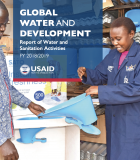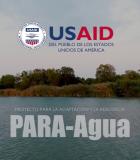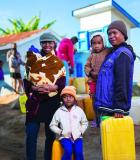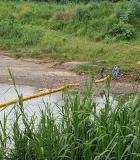Partnering for Adaptation and Resilience (PARA-Agua)
Climate change has negatively impacted water resources and ecosystems in many parts of Latin America and the Caribbean. In Peru and Colombia, rising temperatures and extreme hydrologic events such as prolonged drought and heavy flooding put livelihoods in downstream communities at risk. Many economically important sectors—especially water-reliant agricultural industries such as pima cotton, alpaca textiles and crops in Peru, as well as coffee in Colombia—are based in regions that depend on water supplied by glaciers and páramos (moorlands) that are rapidly receding due to climate change.
USAID established the Partnering for Adaptation and Resilience (PARA-Agua) initiative to help governments and communities address these challenges. PARA-Agua is a multi-year collaboration that brings together scientists, decision-makers, and stakeholders from across the region to help communities adapt and become more resilient in the face of a changing ecosystem.
Over the life of the project, PARA-Agua partnered with scientists, decision-makers and communities across the region to strengthen their watershed management and planning capabilities, with the aim of improving water security and increasing resilience to the impacts of climate change. Under USAID Washington‘s guidance, PARA-Agua focused on all aspects of watershed management in the context of climate change. While a regional project, on-the-ground implementation took place only in Colombia and Peru, in watersheds identified in consultation with counterparts and USAID. PARA-Agua selected four vulnerable watersheds in Peru and two in Colombia found to have committed stakeholders, key watershed institutions, sound and robust climate data and functioning government systems.
Actual Outcomes
From 2013 until its close in 2017, the PARA-Agua project helped researchers generate policy-oriented data on watershed management for integration into decision-making processes, establishing new regional networks across watersheds, and creating linkages between national agencies and their regional counterparts.
Through PARA-Agua.net—an online community of practice—PARA-Agua has engaged key researchers, governments, local stakeholders, and community members in conversation and action. With more than 1,500 registered members, PARA-Agua.net serves as a hub for research, trainings and webinars, discussion forums, and other updates from the regional water sector.
This engagement and outreach yielded results such as the creation of a regional water fund in northern Peru for the Chira-Piura watershed that commits all key water users to the integrated management of water resources throughout the length of the watershed.






